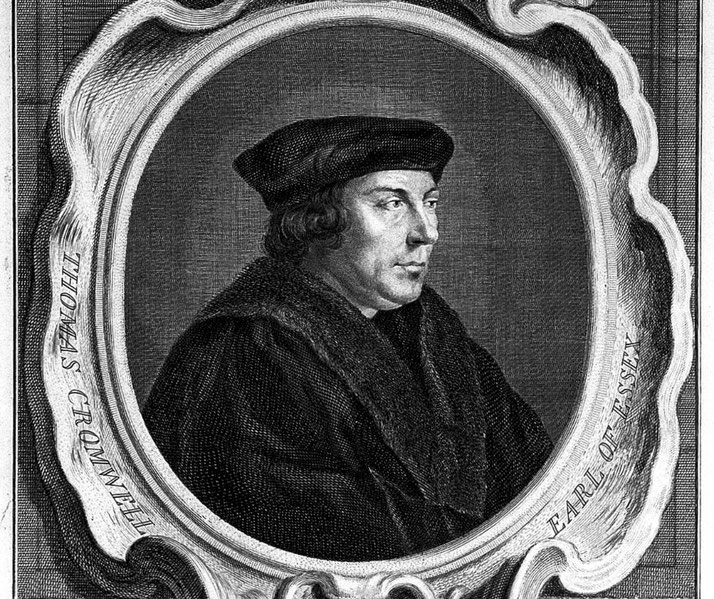Thomas Cromwell: Hero or villain of Tudor England?

Thomas Cromwell combined ambition with intelligence, and he pursued a firm sense of purpose. That determination carried him from obscurity to the heights of royal power.
His influence on England's religious and political transformations was considerable. Yet, the same qualities that won him power also earned him bitter enemies and a reputation still under scrutiny.
From Putney to the Halls of Power
Before gaining royal favour, Cromwell had already lived an unusual life for a future statesman.
Born around 1485, he left England as a teenager and travelled across Europe.
During that time, he possibly worked as a soldier in Italy and later served as a merchant in the Netherlands.
His years abroad provided him with an education in languages, trade, and law that would later shape his policies at home.
After returning to England, he trained as a lawyer and entered the service of Cardinal Thomas Wolsey, who brought him into the highest levels of English politics.
When Wolsey fell from power in 1529, Cromwell managed to preserve his own position and gained the attention of Henry VIII.
As Henry’s marital crisis escalated, Cromwell emerged as one of the king’s most trusted advisors.
In 1532, he became a royal councillor and soon after was appointed Chancellor of the Exchequer.
That same year, he began drafting legislation to weaken papal authority in England.
His political skill lay in using Parliament to make royal supremacy over the Church legal.
Through a sequence of legal measures, including the Act of Supremacy in 1534, he helped Henry become Supreme Head of the Church of England.
Cromwell promoted the king’s desires and advanced his own vision of a centralised, legally grounded monarchy.

Revolution and the Destruction of the Monasteries
At the heart of Cromwell’s religious reforms lay the closing of the monasteries.
Between 1536 and 1540, he directed the closure of over eight hundred religious houses across England and Wales.
In his capacity as Vicegerent in Spirituals, he sent commissioners to investigate and report on monastic corruption and wealth.
The resulting campaign ended centuries of religious life and transferred large areas of land and wealth to the Crown.
Cromwell presented the policy as both moral and economic: monasteries had failed to uphold proper spiritual standards and no longer suited the needs of a sovereign national Church.
However, the process involved harsh tactics, forced evictions, and the destruction of sacred sites.
Many communities suffered economic disruption, and some areas experienced open rebellion, such as during the Pilgrimage of Grace in 1536.
Cromwell also attempted to modernise English government. He helped establish new financial courts, such as the Court of Augmentations, to manage revenues from the dissolved monasteries.
He promoted the use of the Privy Council as a more efficient instrument of state.
He supported poor law reform and encouraged legislation to assist poor people, though this was a lesser part of his broad agenda.
His commitment to administrative order and legal procedure recreate the structure of the Tudor state.
However, his enemies accused him of manipulating the king and hoarding power.
His common birth and lack of noble background made him a target of aristocratic suspicion.
Courtiers like the Duke of Norfolk resented his influence and waited for an opportunity to bring him down.
The Fall from Grace
That opportunity came through Henry’s fourth marriage. In January 1540, Cromwell arranged for the king to marry Anne of Cleves, a German princess whose alliance would strengthen England’s position against Catholic powers.
The king disliked Anne on sight and blamed Cromwell for the embarrassment.
Within months, Norfolk and his allies accused Cromwell of heresy and treason. On 28 July 1540, Cromwell was executed at Tower Hill.
He received no trial. His enemies struck quickly, and his political career ended with the same speed that had once defined his rise.
The judgement of Cromwell has never been straightforward. Supporters of Protestant reform admired his rejection of papal authority and his commitment to royal law.
Critics saw him as the architect of tyranny and religious persecution. He could be generous to allies and ruthless to opponents.
His policies broke ancient institutions and created new ones. He pursued power without apology and brought efficiency to royal government.
Whether he should be admired or condemned depends on how one views his methods and motives.
In Tudor England, Cromwell was both servant of the Crown and agent of major change.
His long-term impact refuses to fit neatly into categories of heroism or villainy.
What do you need help with?
Download ready-to-use digital learning resources
Copyright © History Skills 2014-2025.
Contact via email
With the exception of links to external sites, some historical sources and extracts from specific publications, all content on this website is copyrighted by History Skills. This content may not be copied, republished or redistributed without written permission from the website creator. Please use the Contact page to obtain relevant permission.





